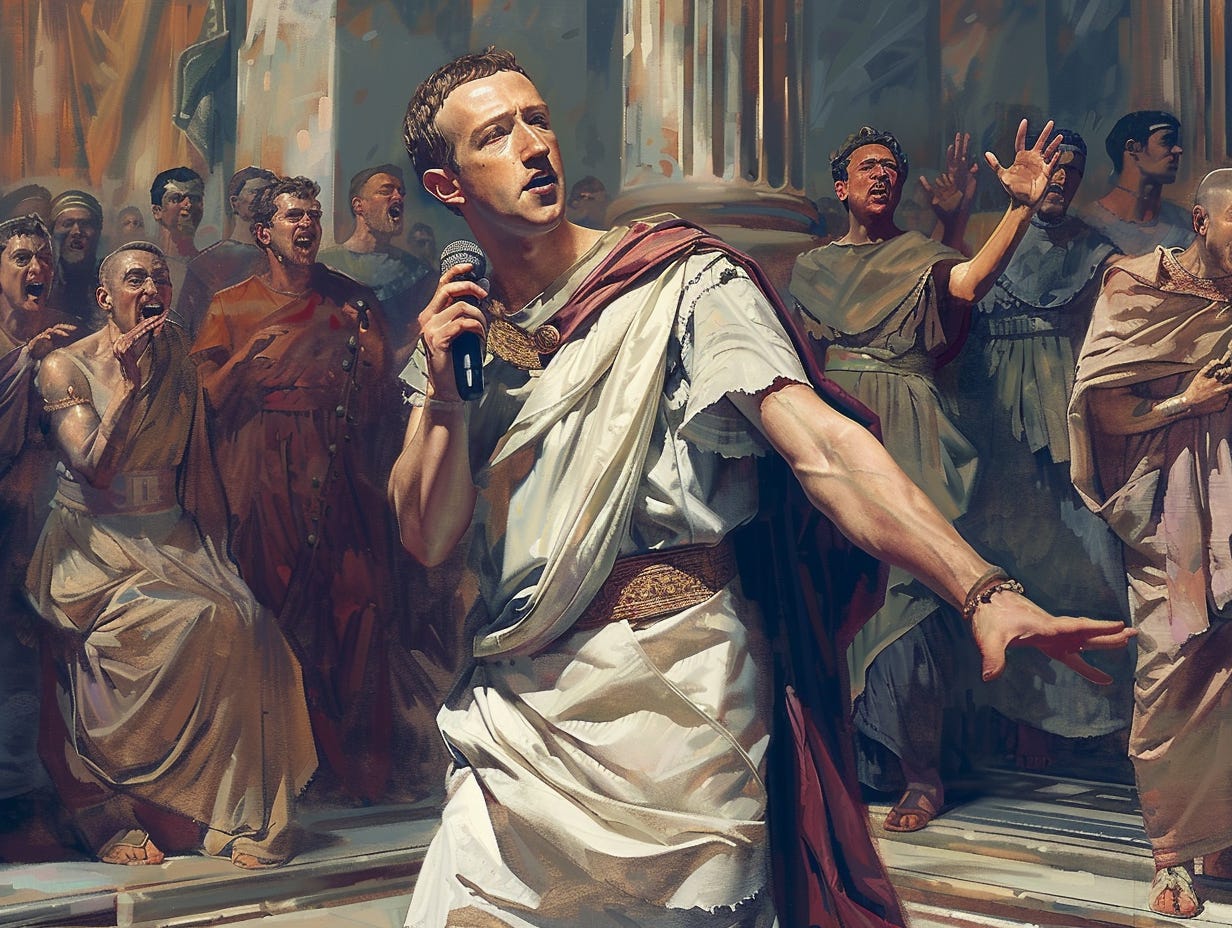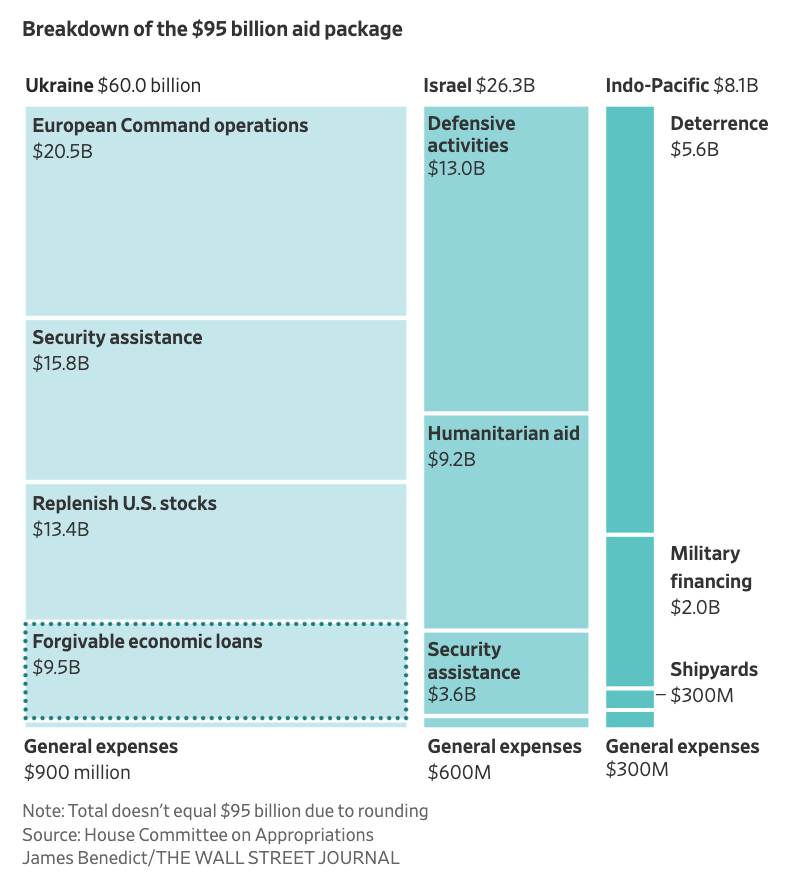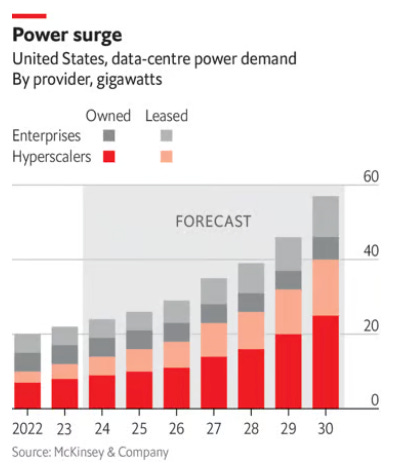This issue’s a long one, hope you enjoy!
🎧🎬
and I recorded our interview with director Ed Zwick on Friday. Excited to share it with you all next week!📺 Netflix doesn’t have an inspiring record with these, but I’m cautiously optimistic about this upcoming 16-episode adaptation (trailer) of Gabriel García Márquez’s One Hundred Years of Solitude.
Highlights for this issue:
Drake’s AI diss track
Mark Zuckerberg’s longform interview about AI and ancient Rome
Ozempic becoming an everything drug
Speaker Mike Johnson is betting the House
Good reading,
—TK
If you were forwarded this email, subscribe here.
If you’re a free subscriber, you’ll get the full version of this newsletter in a week.
Here’s a link to my 2024 News Journal where I'm collecting the headlines that catch my interest each day so that when we look back at that under the year, we'll see when things happened, what kind of patterns emerged, without hindsight bias.
Last April, I wrote about one of the fully AI-generated songs to go viral. I wrote then that once the copyright issues became navigable, “it seems pretty clear to me that we’ll at least see more vocals being made and manipulated like any instrument on synths.”
That viral track ended up getting taken down by Universal Music Group but since then artists have been experimenting more and more with AI. Grimes announced she’d split royalties 50/50 with anyone who used her voice to make new music and went as far as to launch software and distribution to help people take her up on her offer.
On Friday, Drake dropped a diss track, the latest response in his recent feuding with Kendrick Lamar, that used the AI-generated voices of 2pac and Snoop Dogg, as well as his own voice, to rap the lyrics. Pretty cool to see such a clear milestone for the integration of AI into music and our culture. Of course, AI has been in the rap world for a while now. Kendrick himself notably used it in his own music video for “The Heart Part 5”, which used deepfake tech from Deep Voodoo, the South Park creators’ AI video company, to put different celebrities faces’ on Kendrick’s. Now that I think about it, I don’t think Kanye did for his “Famous” music video although that was far uncannier.
Drake is out here breaking barriers but this will do no favors for his reputation against critics, who can now say that not only does he not write his own lyrics, he doesn’t rap them either. Curious to see how Kendrick responds. Maybe ChatGPT can help him come up with a quintuple entendre.
🏛🇺🇦🇹🇼🇮🇱 As you can tell from all the emojis, Speaker Mike Johnson (R-LA) has had a very busy and productive 24 hours, getting legislation through the House that will provide aid to Israel, Ukraine, Taiwan, and force TikTok’s parent company, ByteDance, to divest its subsidiary.
It’s been interesting to see how the Speaker has boxed out his right-wing party members and embraced governing with a more centrist coalition. This week’s work required some maneuvering, the “first time since at least 1995 that the minority party had helped the majority party pass a rule through committee.” Although it took until the 11th hour, it’s good to see the legislative branch functioning and actually able to pass meaningful legislation, especially after what happened with the border/immigration bill.
In Johnson’s own words:
If I operated out of fear over a motion to vacate I would never be able to do my job. History judges us for what we do. This is a critical time right now, a critical time in the world state… I’m doing here what I believe to be the right thing. I think providing lethal aid to Ukraine right now is critically important… I really do believe the intel and the briefings that we’ve gotten. I believe Xi and Vladimir Putin and Iran really are an axis of evil. I think they’re in coordination on this. I think that Vladimir Putin would continue to march through Europe if he were allowed. I think he might go to the Balkans next. I think he might have a showdown with Poland or one of our NATO allies. To put it bluntly, I would rather send bullets to Ukraine than American boys. My son is gonna begin at the Naval Academy this fall. This is a live-fire exercise for me as it is for so many American families. This is not a game. It’s not a joke. We can’t play politics with this. We have to do the right thing.
I would love to have been a fly on the wall in one of the intelligence briefings that changed Johnson’s mind on Ukraine. Whatever it was, it must have been compelling enough for him to risk his speakership and cross the aisle to get the legislation passed.
🇨🇳📱 On the TikTok front, I recommend reading Jordan Schneider and ChinaTalk and their analysis. I think there are very compelling reasons to force a divestment from ByteDance. I can go into this more in-depth in its own future item, but my bottom line is that there’s no such thing as a private Chinese company free from CCP direction. Not only has TikTok repeatedly lied to minimize its affiliation with its parent company, even if all US user data could be secured domestically (not credible imo), the algorithm of the app itself remains an incredibly powerful tool to control the information diet for half of the US population and shape public sentiment on any number of issues, in a way that’s far more subtle and pernicious than say the USSR owning CBS during the Cold War. Here’s a good, concise security brief on the national security issues. And of course there’s also the mental health effects of it, which is why China has been aggressive in curbing the video app’s use in China itself. Digital opium for thee, but not for me.
Maybe relatedly, China ordered Apple to remove several messaging services from its App Store in China, including WhatsApp, Signal, and Telegram. Of course, on top of countless publications, many US tech companies have been prevented from operating their services in China for a while now: Google, YouTube, Facebook, Reddit, Netflix, Instagram, WhatsApp, Twitter/X, etc.
🏈💰 Carlyle Commanders? Blackstone Broncos? TPG Texans? The NFL is getting ready to approve private equity investment into NFL team ownership. The move comes as rising team valuations (alongside increasing TV and sports betting revenue) has shrank the pool of potential buyers and raised the upside for current owners looking for some liquidity.
The gridiron football league is the only North American sports organisation that has not yet opened itself to institutional investment. Major League Baseball became the first top-tier US league to do so in 2019, and the NBA, NHL, and MLS soon followed suit, spurred by a need for liquidity during the coronavirus pandemic.
I can’t wait until this reaches its illogical end and, reductio ad Robinhood, we’re all trading fractional shares of our favorite teams.
💊 Now you can snooze and lose with the new class GLP-1 agonist weight-loss drugs.
The results from two year-long clinical studies showed that tirzepatide, which is marketed under brands including Zepbound for weight loss and Mounjaro for diabetes, helped to cut the severity of obstructive sleep apnoea in adults with obesity by up to nearly two-thirds, suggesting the treatment could help the estimated 20mn Americans affected by moderate to severe sleep apnoea.
More significantly, these drugs are showing really promising signs of reducing the risk of heart attacks, strokes, liver diseases, and maybe Alzheimer’s.
🤖🧠 I worked with
on another episode of his podcast, this one an interview with Mark Zuckerberg covering a ton of stuff: the release of their latest Llama-3 AI models, the strengths & dangers of open sourcing AI development, energy bottlenecks for scaling, and what Zuckerberg learned from Augustus and the history of ancient Rome.Highly recommend checking this one out. It’s also much more accessible and higher-level than the AI one I highlighted last issue.
The last topic was especially interesting to me because I’m reading right now with my book club John William’s epistolary novel, Augustus.
Augustus became emperor and he was trying to establish peace. There was no real conception of peace at the time. The people's understanding of peace was peace as the temporary time between when your enemies inevitably attack you… He had this view of changing the economy from being something mercenary and militaristic to this actually positive-sum thing…
That’s something that's really fundamental: the bounds on what people can conceive of at the time as rational ways to work. This applies to both the metaverse and the AI stuff. A lot of investors, and other people, can't wrap their head around why we would open source this. It’s like “I don't understand, it’s open source. That must just be the temporary time between which you're making things proprietary, right?”…
…a lot of the time, there are models for building things that people often can't even wrap their head around. They can’t understand how that would be a valuable thing for people to do or how it would be a reasonable state of the world. I think there are more reasonable things than people think.
I thought Zuckerberg gave a great answer for the lessons you can extract from studying history and classical antiquity in particular. I wish he had gone a bit deeper on the parallels with the economic situation of ancient Rome given the analogies you could make between the surplus of slave labor from military conquests and the impacts of AI and automation on the workforce today. You could draw some interesting points between the domestic unrest of soldiers and common Romans who can no longer find gainful civilian employment and the fears people have today about the effects AI will have on employment. It is understandable why he didn't wouldn’t to touch the politics of it though.
One of the interesting nuggets I got from this interview was getting a sense of the energy requirements for scaling AI training and deployment on top of normal operations.
Zuckerberg talks at length about the bottleneck of building out the data centers, both from a power perspective but also in terms of the time involved for planning, building, and regulatory approval.
It depends on how far the exponential curves go. Right now a lot of data centers are on the order of 50 megawatts or 100MW, or a big one might be 150MW. Take a whole data center and fill it up with all the stuff that you need to do for training and you build the biggest cluster you can… But when you start getting into building a data center that's like 300MW or 500MW or 1 GW, no one has built a 1GW data center yet. I think it will happen. This is only a matter of time but it's not going to be next year. Some of these things will take some number of years to build out. Just to put this in perspective, I think a gigawatt would be the size of a meaningful nuclear power plant only going towards training a model.
For further context, that’s enough energy to power ~450-750k homes, a small city.
🇭🇹 A follow-up to last month’s issue: Haiti has formed a transitional ruling council drawing from the main political parties, the private sector, and religious leaders. Although all members support the deployment of a Kenya-led mission, powerful gang leaders have refused to accept a council’s authority.
One gang leader, Jimmy Chérizier, known as Barbecue, had threatened to attack anyone who signed on to the new government, describing the transition as an illegitimate concoction of Haiti’s corrupt political system.
“Cut off their heads and burn down their houses,” he told his gang members, using a 19th-century war cry for Haitian independence.












📈 first Derivative [111]